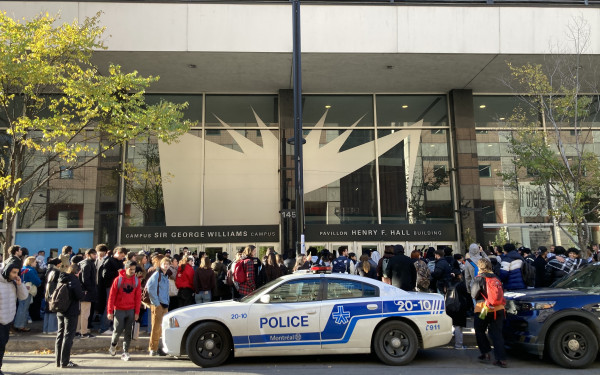Concordia to consider adopting the IHRA antisemitism definition
IHRA’s definition of antisemitism has been widely debated
On May 27, Concordia University, McGill University, University of British Columbia and University of Toronto (UofT) presidents attended a House of Commons Standing Committee on Justice and Human Rights meeting to speak about antisemitism on Canadian university campuses.
During the hearing, criminal defence lawyer Mark Sandler presented 14 recommendations to the members of Parliament (MP) that aim to address antisemitism in Canada.
One of the recommendations constitutes the implementation of the International Holocaust Remembrance Alliance’s (IHRA) definition of antisemitism in all levels of government, educational institutions, police services and human rights commissions.
IHRA’s definition of antisemitism has been criticized by 128 scholars, who have described it as aiming to “discredit and silence legitimate criticism of Israel’s policies as antisemitism.”
Concordia President Graham Carr spoke in front of Parliament on how the university has been handling antisemitism on campus.
In his testimony, Carr highlighted the Nov. 8, 2023 Hall building altercation, when an escalation between Concordia’s Solidarity for Palestinian Human Rights and Israeli student club StartUp Nation led to two arrests, due to tensions between the clubs.
“That incident gave Concordia a black eye,” Carr said.
When MP Anthony Housefather asked if Concordia would adopt the IHRA definition, Carr said that he will “consider it going forward” and that his team has already had a meeting regarding the potential implementation of the definition.
Of the four universities, only UofT rejected the implementation of the IHRA definition of antisemitism.
According to Concordia’s spokesperson, the university expects that the Standing Together against Racism and Identity-based Violence (STRIVE) Task Force’s subcommittee on antisemitism will evaluate whether the IHRA definition needs to be implemented.
Housefather also asked Carr if he opposed the Boycott, Divestment, Sanctions movement, also known as BDS, with Housefather describing it as “demonization and delegitimization of Israel.”
Carr explained that “the university’s position, since 2014, has been in opposition to BDS.”
Later in the meeting, Carr also testified to the importance of combating hate speech while not limiting freedom of expression.
According to Carr, the university has seen over 70 academic events by both Pro-Palestinian and Pro-Israeli students. During the 2023-24 academic year, the university cancelled four Pro-Palestinian events and one Pro-Israeli event, all of which aimed to bring external guests on campus.
MPs encouraged university presidents to enforce their Codes of Conduct, prevent hate speech on campus and fight antisemitism.
Several MPs and speakers talked about the importance of conflating antisemitism and anti-Zionism.







